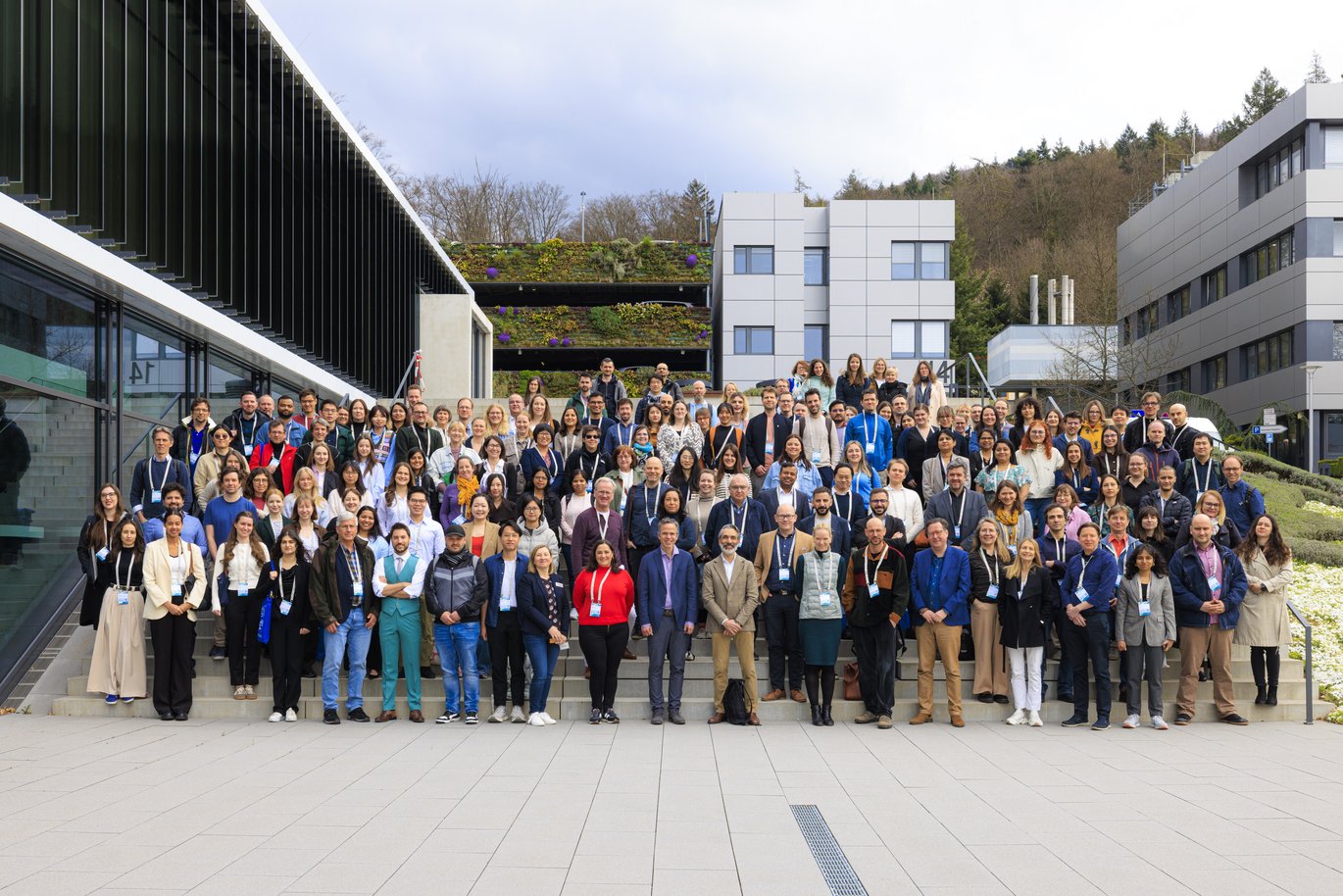Nordic Momentum: AI in One Health Take Centre Stage at the 5th EMBL Partnership Conference in Heidelberg
From 31 March to 2 April 2025, the 5th EMBL Partnership Conference brought together more than 200 participants to EMBL Heidelberg to explore the theme "AI in One Health." The conference showcased the latest advances on how AI is transforming biomedical research and healthcare, with contributors from 29 member states across the globe—from Australia to Norway.

The Nordic EMBL Partnership (NEP) was well represented with around 70 attendees, reflecting its strong commitment to collaborative, interdisciplinary science in molecular medicine, genomics, and computational biology.
The scientific programme began with opening remarks by Jan Korbel, the interim Head of Site at EMBL Heidelberg, setting the scene for the meeting.
The keynote lecture, delivered by Giorgio Metta of the Italian Institute of Technology (IIT), introduced a broad framework for the use of AI in RNA interactions, disease prediction, and therapeutic design—demonstrating the role of AI in health and disease, from a robotics point of view.
Across three scientific sessions, the programme highlighted the power of AI to uncover patterns in complex data to investigate the mechanistic of life sciences if health and disease.
In the Molecular Medicine and Precision Health session, talks focused on how AI is being applied to cancer diagnostics, disease relapse prediction, and microbial discovery. These themes reflect a broader shift in the field toward integrating multiomic and clinical data to improve precision therapies and public health interventions.
The second session, Genetics, Genomics, and AI in Complex Systems, focused on how AI is transforming genetics and genomics by deepening our understanding of genome regulation, editing, and evolution. Talks covered advances in CRISPR technology and predictive models for antibiotic resistance. The session reflected the growing integration of systems biology, AI, and synthetic biology.
In the final session, Imaging, Technology, and Computational Design, presenters showcased innovative tools that apply AI to understand cellular structures, protein dynamics, and neurobiological signals. Advances in generative machine learning, computational protein design, and single-molecule resolution imaging revealed how AI is enabling scientists to move beyond observational research and into predictive modelling and simulation.
This session reinforced a key theme of the conference: combining data-rich biology with AI is opening new avenues into health and disease research.
A Platform for Early-Career Researchers
The Young Investigator Meeting (YIM), a dedicated session for early-career scientists to connect across disciplines and geographical boundaries, took place on the 1st day of the conference. With many NEP-affiliated researchers taking part, the YIM served as a valuable space to learn about transferable skills such as leadership, but also to network internationally.
NEP Researchers in the Spotlight
- Nina Linder from the University of Helsinki and FIMM gave an insightful talk on her work in Angola. Her work connected AI-driven image analysis to scalable cancer screening solutions for low-resource settings, such as remote hospital in Africa.
- Andrea Ganna, from FIMM, told the audience that “He loves Health Data” and defines himself as a “Collector of Health Data”. His work on nationwide health and genetic datasets aims to predict disease risk and progression—an approach that demonstrates the scalability and societal impact of AI when combined with high-quality biobanks.
- Laura Carroll from MIMS presented on how machine learning approaches can uncover novel microbial secondary metabolites, potentially leading to the discovery of new antibiotics.
- Finally, Tatiana Belova from NCMBM explored cancer heterogeneity through gene regulatory networks, demonstrating the potential of computational models (in this case CAVACHON) to guide more personalized cancer therapies.
Nordic Excellence Recognised: Poster Prize Winners
A highlight of the meeting was the poster session, which saw high-quality contributions from early-career researchers across the EMBL network. In a major nod to the strength of Nordic science, all three poster prizes were awarded to researchers from the Nordic EMBL Partnership:
- Ida Kjærsgaard Grene – DANDRITE, Denmark
- Yrjö Koski – FIMM, Finland
- Iryna Yakovenko – MIMS, Sweden
Strengthening Strategy and Collaboration Across the Nordic EMBL Partnership
The NEP Steering Committee met in Heidelberg to review ongoing activities and explore future opportunities for collaboration. Discussions focused on strengthening strategic alignment, fostering researcher mobility and training, and enhancing the partnership’s visibility and long-term sustainability.
The NEP administrative and communications teams met with the EMBL team to collaborate on key initiatives. Discussions included progress on the NORPOD postdoctoral fellowship programme, updates on the NEP communications strategy, and identifying ways to strengthen support for scientists across the four nodes.